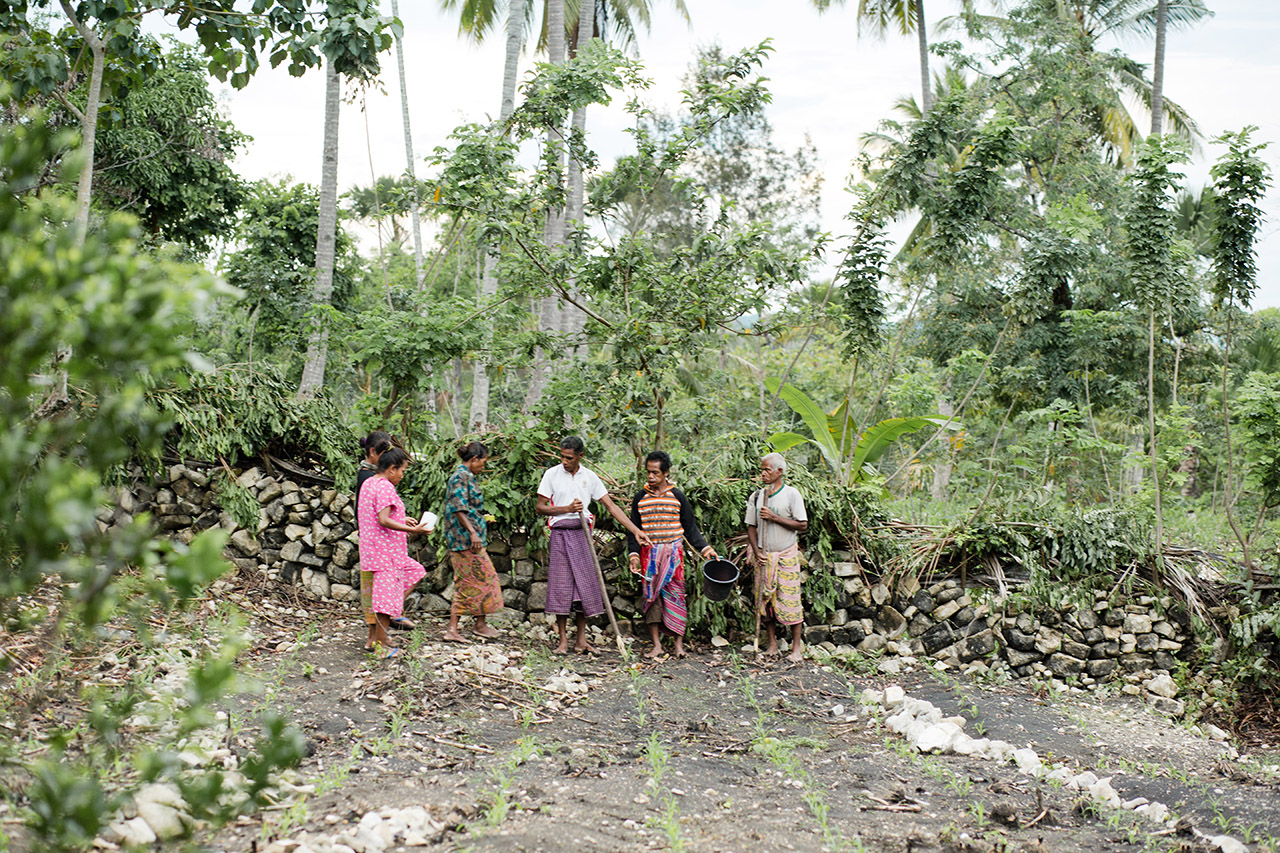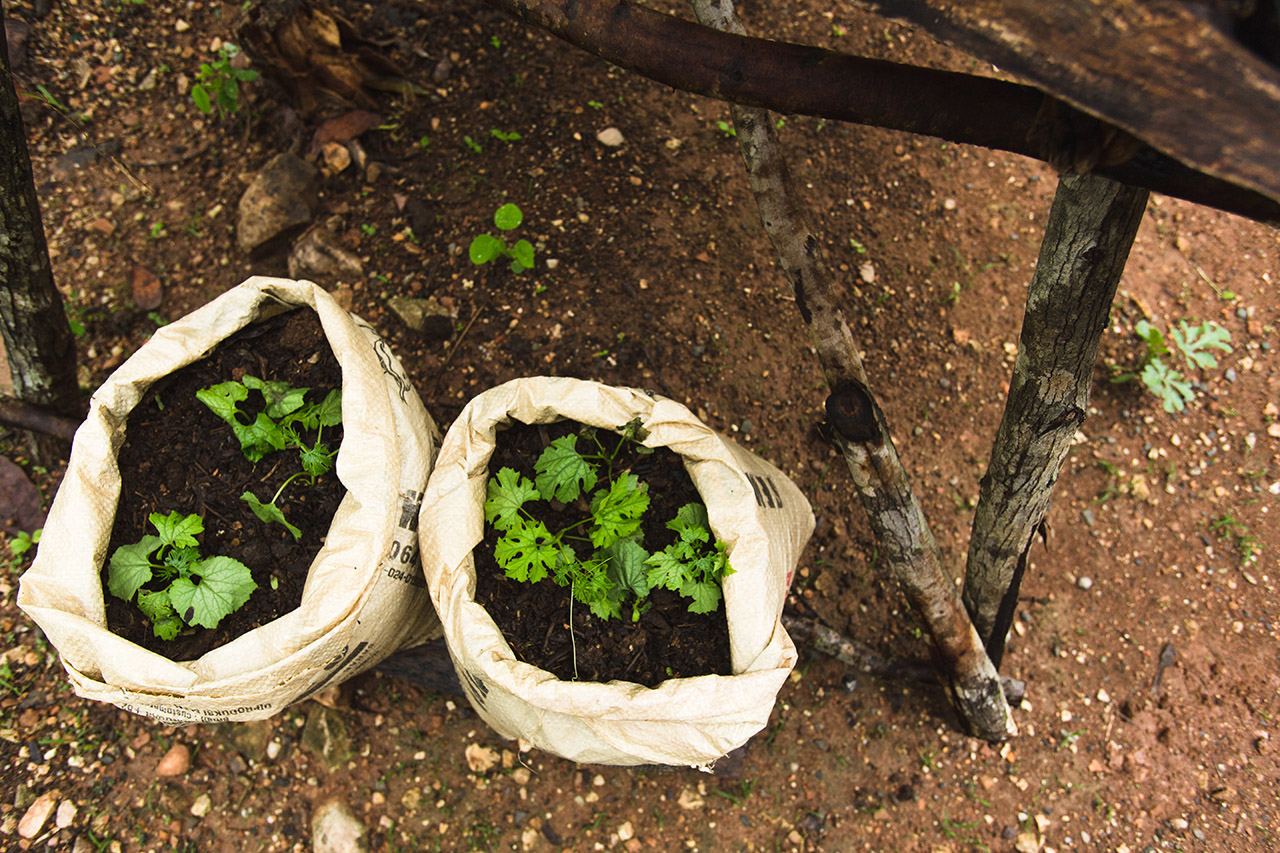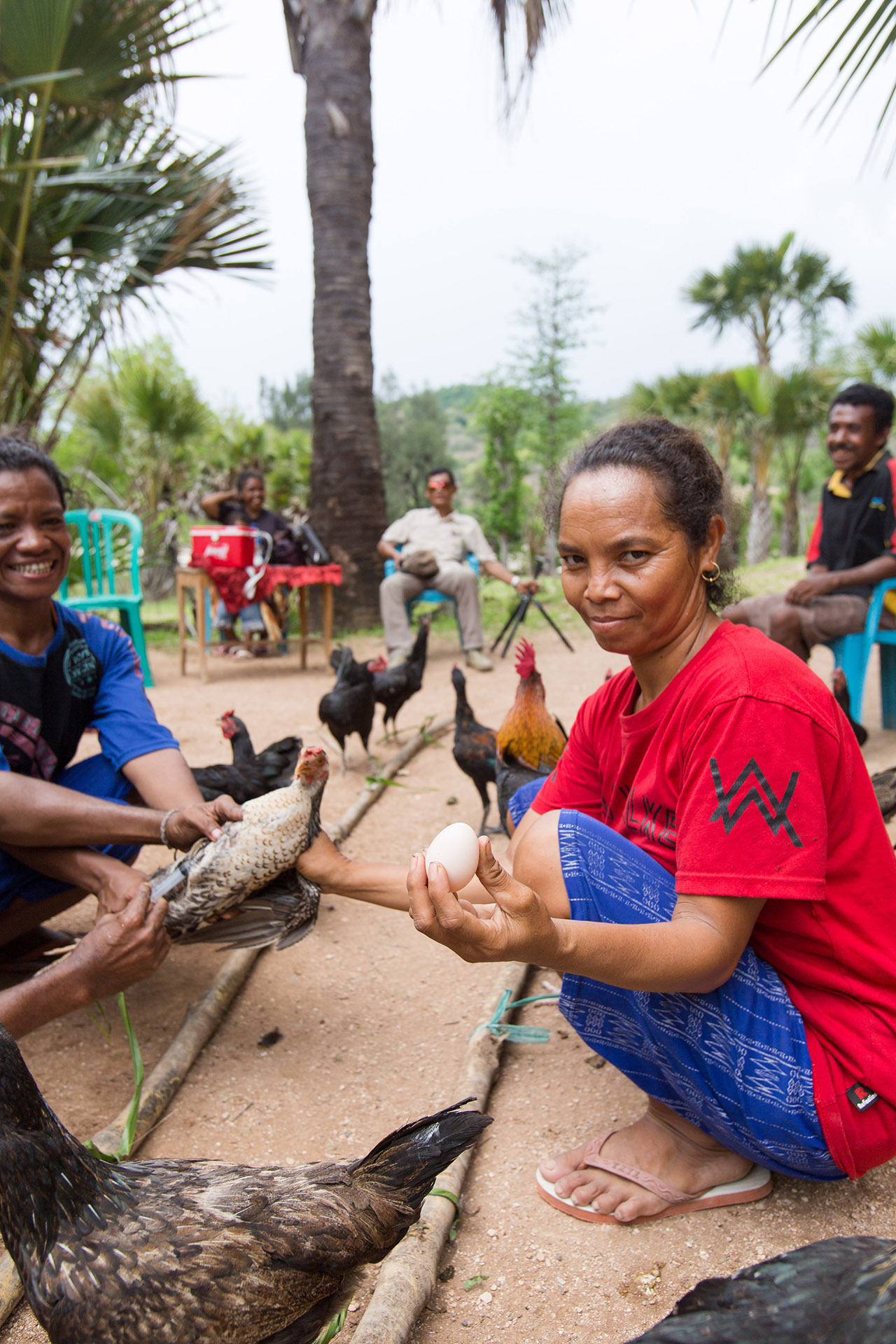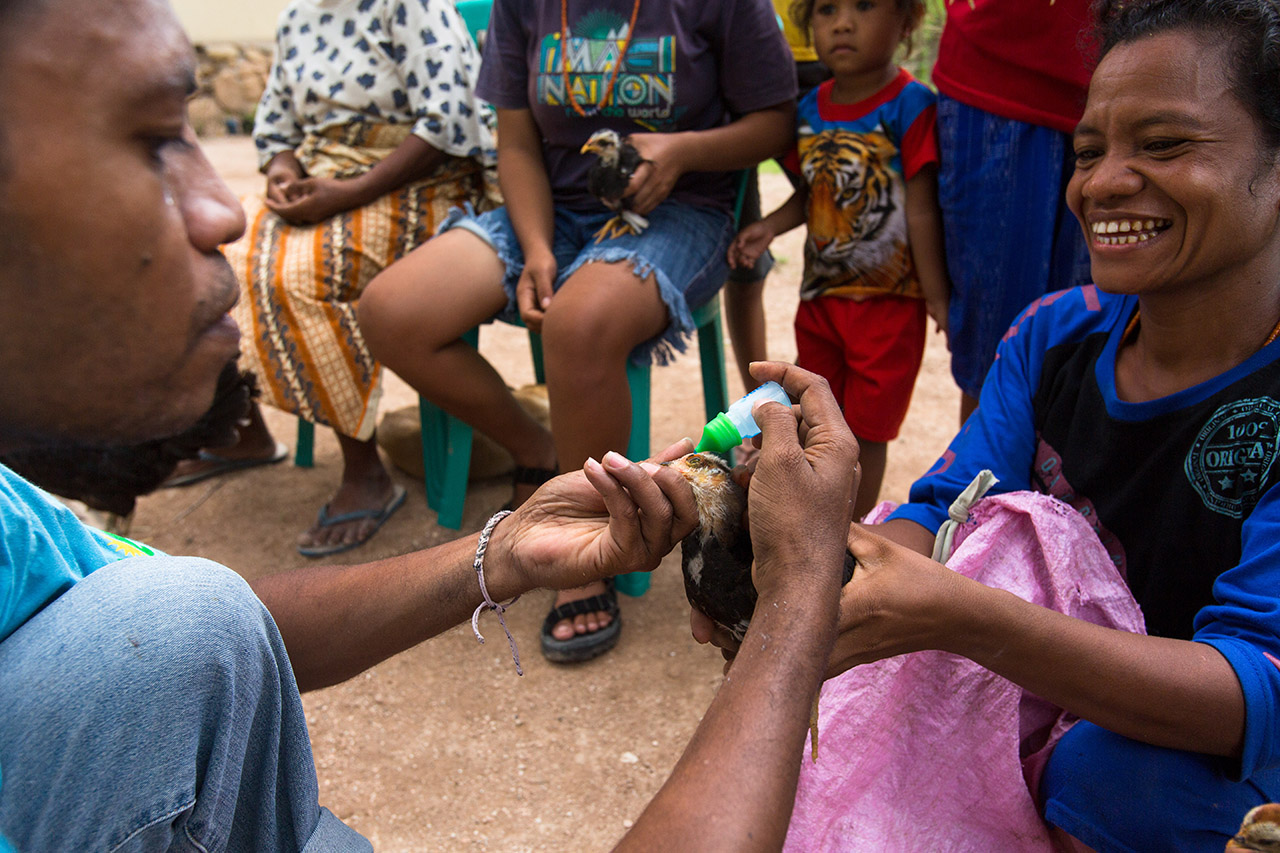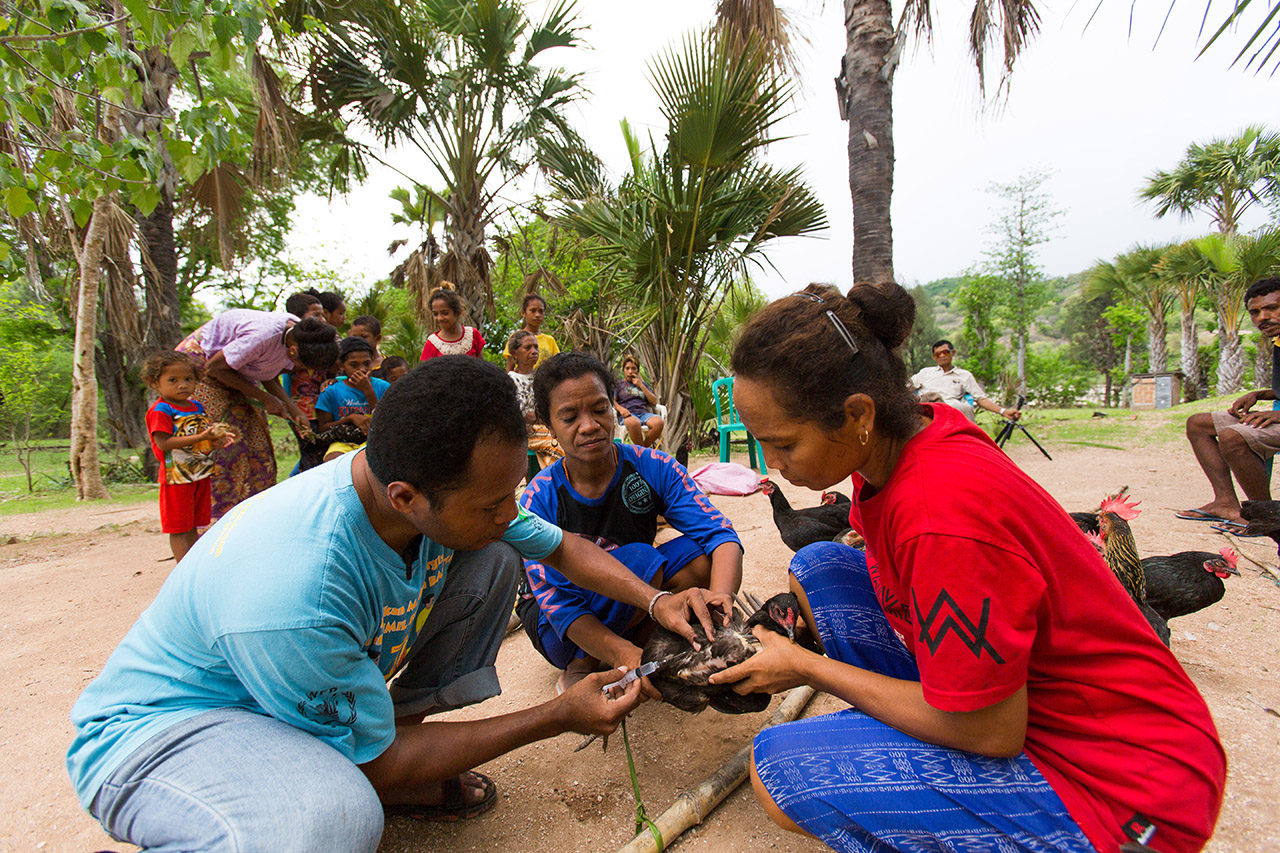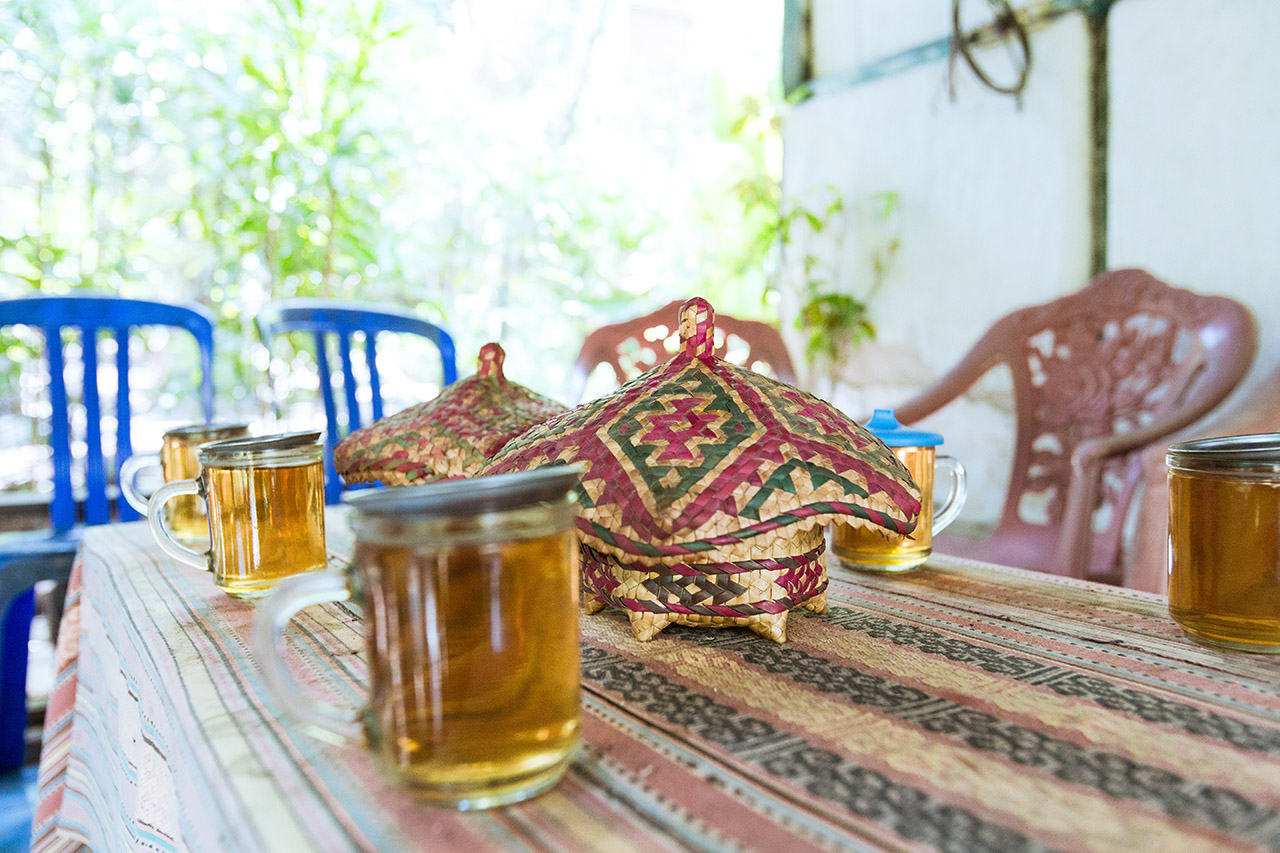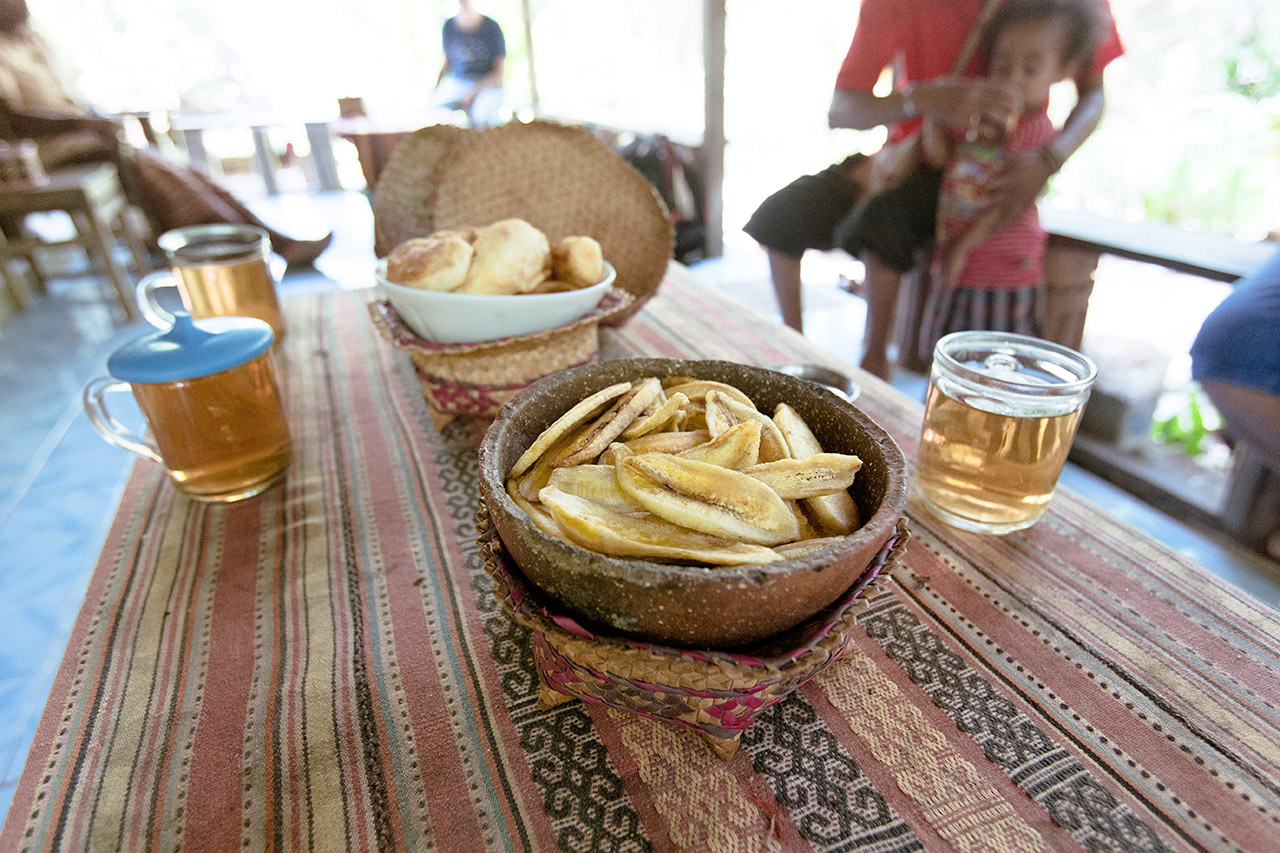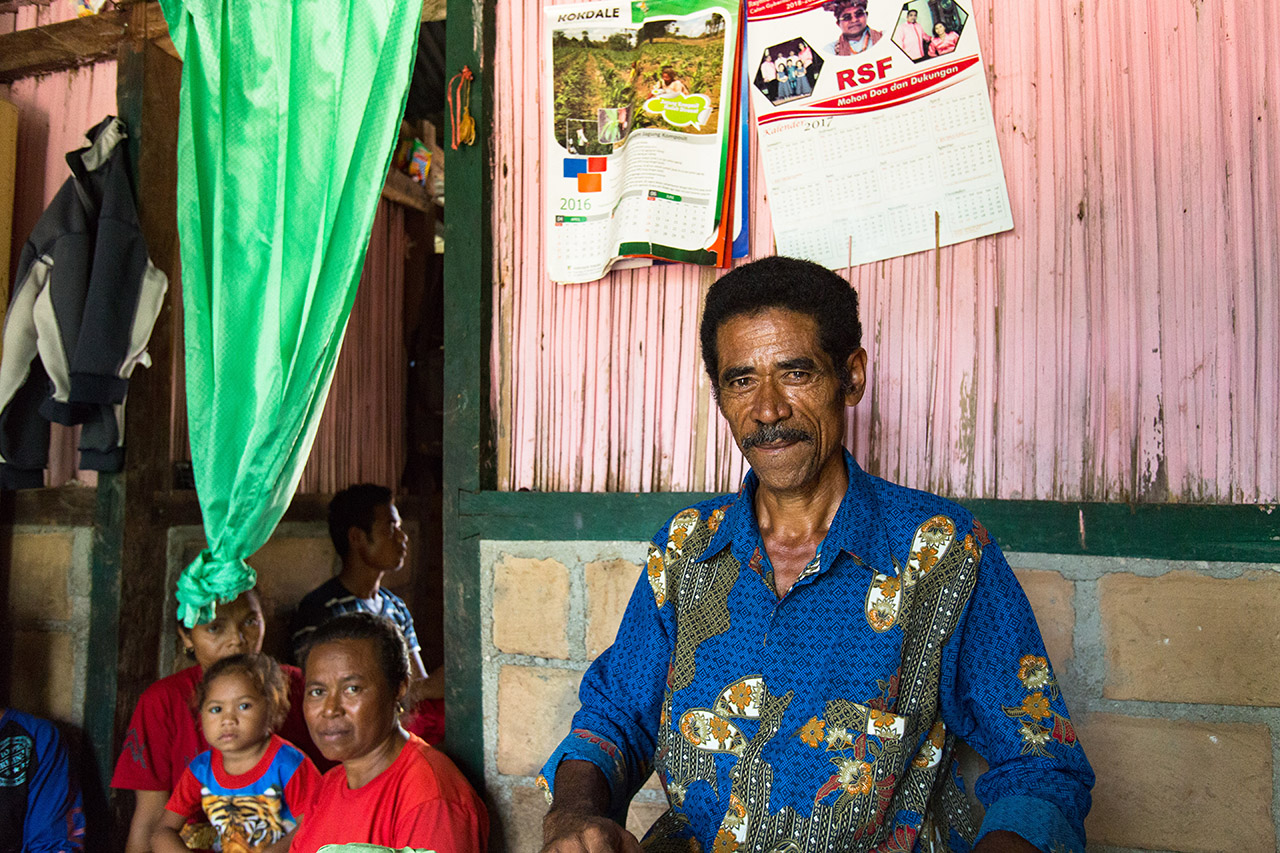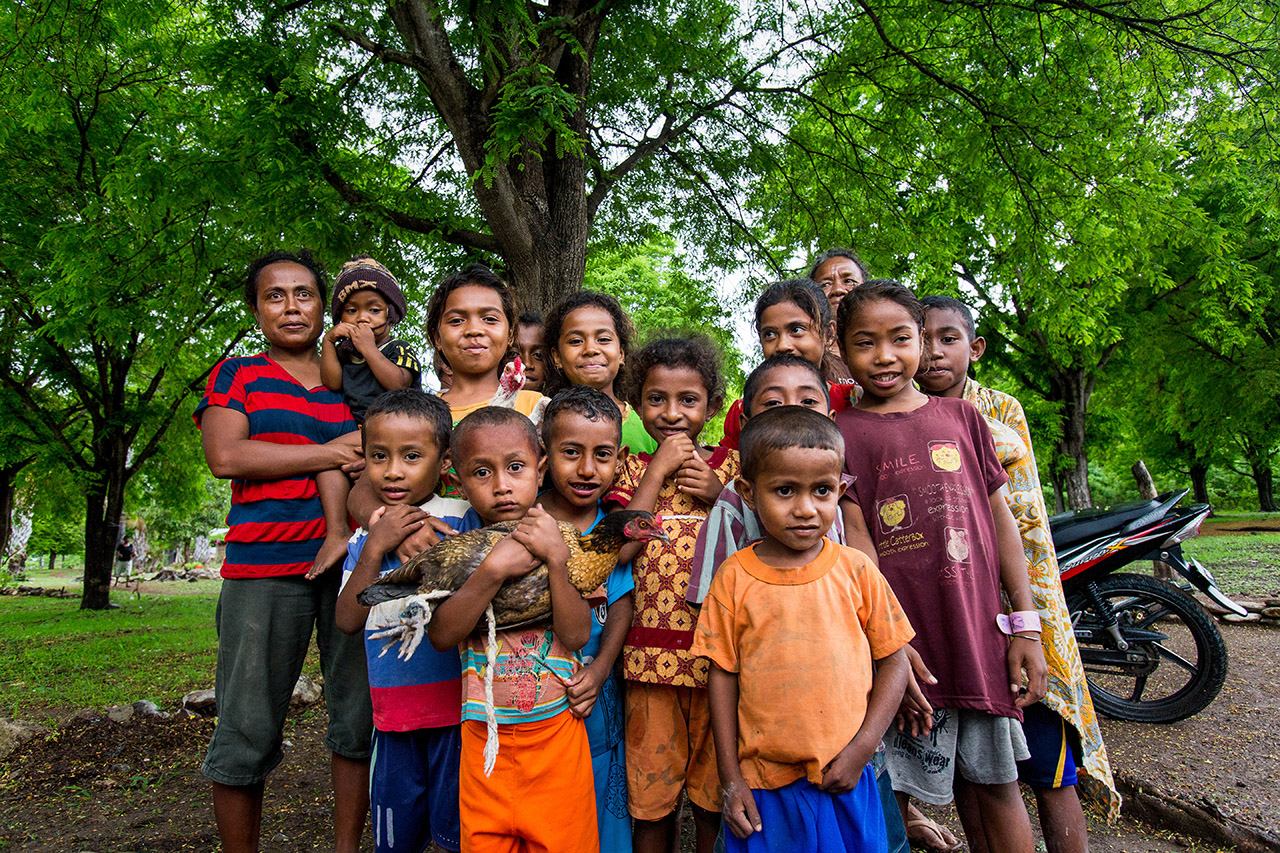Ryan Shanley is a humanitarian photographer who recently visited several CWS programs in Asia. This blog is part of a series of reflections on her trip. Follow Ryan on Instagram @ShanleyStudio or through her website.
For my first assignment with Church World Service I was sent to West Timor, Indonesia to photograph their project, Timor Zero Hunger. TZH is a program implemented in various villages that helps community members achieve food security through sustainable farming practices and ultimately improves daily nutrition through vegetable growth and chicken raising. Achieving food security in regions where people have little to no food limited due to extreme poverty requires creative thinking, training and time.
CWS makes regular visits to the villages that they’ve identified as needing their support the most and teaches sustainable agricultural techniques to select members of the community, who in turn teach the practices to their neighbors. CWS led-education sessions also provide nutrition demonstrations for mothers with children under the age of five. Their focus? How to use the vegetables you’re now able to grow to create a balanced meal for your youngsters. CWS hopes that fewer and fewer children have to live malnourished.
What an amazing project to be placed on, right? While working on the TZH project, I got to witness chicken vaccinations and cooking demonstrations, visit newly-constructed protected wells and photograph beneficiary success stories. The work that Church World Service is achieving is remarkable; I knew I was privileged to get a glimpse into the lives of the villagers and hear about where they started from and witness where they are now. Families who started with very little were given three chickens and now have 20. Families who had a small plot of overgrown land now have a garden overgrown with Chinese cabbage, cucumbers, tomatoes and eggplant. Some families have gardens with enough excess growth that they are able to sell their vegetables in the local market. Now, these families are able to send their children to school.
The goal was to ensure food security, and that led to education! (CWS is #GOALS.) Families who were once unable to feed themselves are now able to eat, work and educate their kids. It’s remarkable to see how successful these villages have become because CWS simply helped them learn how to correctly farm their land and provided them with seeds.
It makes you think: what other seemingly simple activities could be done that create such a large and lasting impact?
The CWS team has regional offices, local partners and, of course, the beneficiaries themselves. There are many moving parts, quarterly reports and so forth, but they do prove that simple ideas create big change… what else can we, should we be doing?
So now that I’ve set you up with the project background (don’t we all love tangents? *Raises hand*) let me tell you about the villages themselves.
West Timor, Indonesia is situated just above Australia and is one of the southernmost islands in the Indonesian chain. Our team was based in a small town called Soe. From here we traveled to nearby villages daily – nearby being a two to five hour drive, both ways – for six days. Needless to say, even language barriers can’t keep you from creating some awesome inside jokes after that much time together. Plus, I learned some Bahasa!
We drove to each village on unpaved roads that led us through mountains, over mountains and around mountains… a lot of mountains were involved, but along the way I met the most interesting and welcoming people. I witnessed overwhelming hospitality, resilience and camaraderie. I was amongst communities that were considered the poorest in the country and yet they provided me with tea, welcomed me with traditional woven scarves and never once did their smiles wane.
On our first day, we traveled to Oebaki Village. This was hands down the most intense drive I’ve ever been on. Let me preface that by saying this drive was awesome and I have zero complaints, but for illustrations sake, here we go.
The roads were not simply sandy “unpaved” roads (though we drove on those too). Mostly these were roads that had major depressions, massive rocks, possible sinkholes or some sort of element that required us going diagonally, very slowly, over or around said elements. I couldn’t believe how difficult this drive was, and that this was considered normal for the team. The project manager kept apologizing, saying that this would be the only day with such a tough drive, but I kept saying, “No, I’m so happy I get to experience this.” I wanted to learn how connected, or rather, not connected the villages were to each other and more importantly, I wanted to understand the difficulties these communities face because of natural elements. I definitely got hands on experience.
Within Oebaki village, we visited three sub hamlets, the first being Baki Balaf. If you think a village is small, then you’ll be surprised to hear a sub hamlet usually has 15-30 people total. Oebaki was not far from Soe on a map, but the roads to get there along with the soccer field-wide river one must cross to get to the village created, hands down, the wildest drive I’ve ever taken. To make matters more interesting, the river was completely dry from an ongoing drought. If you think that makes crossing easier, you’d be wrong. The rocks are large and getting stuck is easily accomplished, but our driver, Opa, knew this drive like the back of his hand. We drove over big rocks, small rocks, and climbed over mounds, and we made it across, no problem. If you run the length of a soccer field it might take you a minute (s/o to my soccer girls crushing their sprints), imagine twenty minutes!
Once in Baki Balaf, I met the sub hamlet’s leader, Yulius Fallo. He had a kind face and welcomed me with tea and a traditional hand woven material that is draped around the shoulders. His community gathered around to listen to him welcome me and the team. You could easily see that his people respected him and were proud of what their community had accomplished. Yulius began to speak to me in his local Bahasa Timor language and my CWS representative translated,
“We’re so thankful you’ve come to see our village. We’ve never seen a white person before – you are the first outsider to see us and our home. We welcome you and are very happy you’ve come to visit our community. We are all one people and we knew one day we would be united with others. We hope that you will take what you’ve learned here and tell others in your country about our village.”
I was the first white person they had ever seen. Not foreigner – anyone from a surrounding country is technically a foreigner – but the first white person (someone who did not share his skin color) that his people had ever seen. Given the remote location of Baki Balaf, it isn’t technically surprising that their community has never seen someone with my skin color, but given West Timor’s proximity to Australia, I still felt surprised. Truthfully, I found myself at a loss for how to respond appropriately. My privilege was more clear in this moment then it ever had been before.
With CWS I was allowed to visit Yulis and his people. This was truly new and educational; this was not a tourist experience (nor did I think it would be). I was privileged to be allowed into this community and witness their daily life. I knew my experience in Oebaki and other villages was special, but Yulius’ words underlined that these moments were not to be taken advantage of, that it was my responsibility to document their lives and accurately portray their work and achievements. Yulius’ words reminded me, and now I remind you, that we are all one people, connected by our shared needs and wants. We all love, we learn, we bleed and we are curious. When we understand one another and share our experiences we are a stronger people.
I followed CWS staff through two more sub hamlets in Oebaki, meeting other leaders and photographing chicken vaccinations. I learned about each sub hamlet’s progress, heard stories about their communities and met many children, like these kids pictured here, but I couldn’t help thinking about Yulis and the kind words he said to me in Baki Balif. His words about community empowered me to be better and to make small communities like him feel connected to humanity.


